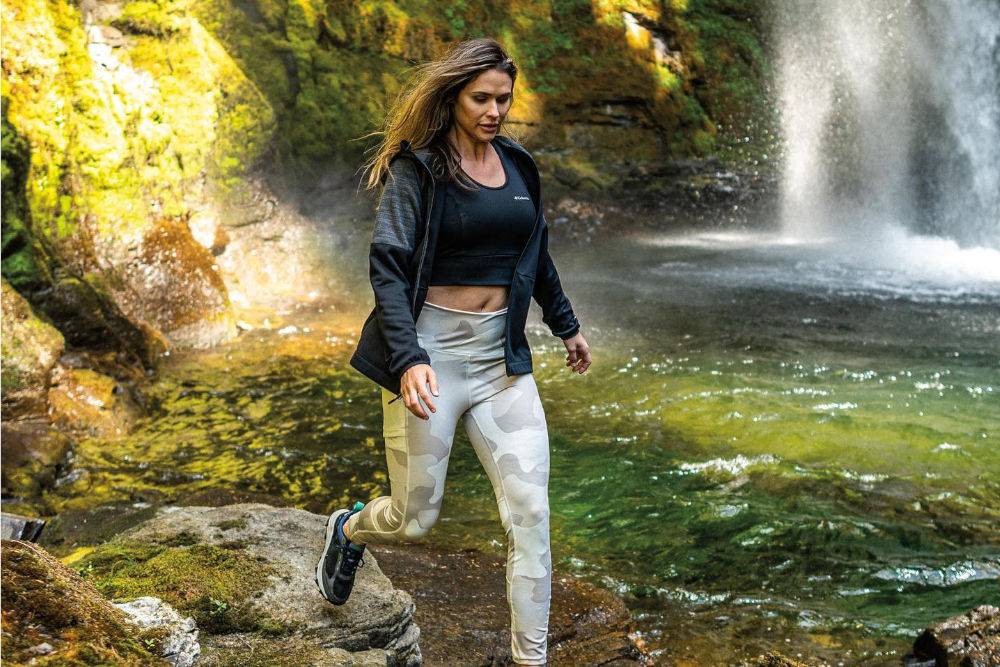
Columbia is an American fashion retailer founded in 1937 in Portland, Oregon, by Gert Boyle's family as the Columbia Hat Company. The multinational clothing-retail company creates outdoor apparel for men, women, and children.
Columbia makes clothing, accessories, shoes, and equipment. The Columbia Sportswear Company owns Columbia and many other brands, such as prAna, Sorel, and Mountain Hardwear.
Columbia operates 129 outlet-retail stores in the United States, 13 branded retail stores, and four brand-specific e-commerce websites. It divides its operations into four geographic segments: the United States, Latin America, and Asia Pacific, Europe, the Middle East and Africa, and Canada.
Columbia combines its approach to product creation with its commitment to its consumers, communities, and the environment. It aims to protect the outdoors with partnerships for a sustainable planet, environmental impact management, and sustainable manufacturing practices.
Panaprium is independent and reader supported. If you buy something through our link, we may earn a commission. If you can, please support us on a monthly basis. It takes less than a minute to set up, and you will be making a big impact every single month. Thank you!
Sustainability Rating: 5/10
Rating FAQ
Category: Clothing, accessories, shoes, bags
For: Women, men, children
Type: Basics, dresses, knitwear, activewear, underwear, loungewear, nightwear, outerwear, boots, sneakers
Style: Casual
Quality: Medium
Prices: $$
Sizes: XS-3XL, 2-24 (US), 4-22 (UK), 34-52 (EU), 4-22 (AU), plus
Fabrics: Cotton, linen, polyester, nylon, spandex, polyethylene, polypropylene, acrylic, neoprene, polyurethane, rubber, leather, wool, down
100% Organic: No
100% Vegan: No
Ethical & Fair: No
Recycling: Yes
Producing countries: Bangladesh, Cambodia, China, Dominican Republic, Egypt, Guatemala, Italy, Germany, Israel, India, Indonesia, Japan, Mexico, Philippines, Peru, Pakistan, South Korea, Sri Lanka, Turkey, Thailand, Taiwan, United States, Vietnam
Certifications: RDS, FSC, LWG, Bluesign
Sustainability Practices
Columbia takes wide-ranging measures to protect biodiversity, reduce its consumption of water, energy, and other resources, avoid waste, and combat climate change.
It wants to be better and more efficient by looking at every aspect of its value chain to ensure the healthy functioning of our planet. However, the majority of its business remains detrimental to the environment.
Columbia only uses a tiny proportion of organic materials such as organic cotton or recycled materials such as recycled cotton, recycled polyester, and regenerated nylon.
Most of the fabrics it uses are either natural without relevant certifications, such as regular cotton or linen, or synthetic petroleum-based fibers such as polyester, nylon, acrylic, and more.
Columbia publishes a list of all its manufacturers and many of its processing facilities on its corporate website. It has committed to high standards for furthering social responsibility and integrity across its supply chain.
The 2022 Fashion Transparency Index gave Columbia a score of 37% based on how much the group discloses about its social and environmental policies, practices, and impacts.
Columbia manufactures its clothes in Turkey and many other East Asian countries, where human rights and labor law violations happen every day.
The American clothing retailer doesn't show any labor certification standard that would ensure good working conditions, decent living wages, health, safety, and other crucial rights for workers in its supply chain.
Columbia has a code of conduct that applies to all its suppliers and subcontractors based on the regulations set by the International Labor Organization (ILO).
Columbia assesses compliance with its Code of Conduct by informal visits or third-party audits with or without notice. It aims to advance ethical worker treatment, safe working conditions, and transparency through its social responsibility program.
Columbia doesn't use exotic animal skin, hair, fur, or angora. But it uses leather, wool, and down feathers to manufacture many clothing pieces.
These animal-derived materials are cruel and unethical. They also harm the environment by producing greenhouse gases and waste. More sustainable alternatives exist.
Sustainability Goals
Columbia has committed to a 30% reduction in Scope 3 manufacturing emissions by 2030 as compared to a 2019 baseline. It focuses on its climate target and water usage to further climate management.
Buy Here
Discover Columbia's sustainable collections at Columbia.com.
Reviews And Experiences With Columbia
Have you had (good) experiences with shopping at or the products of Columbia? Then leave us your rating below.
What We're Up Against
Multinational corporations overproducing cheap products in the poorest countries.
Huge factories with sweatshop-like conditions underpaying workers.
Media conglomerates promoting unethical, unsustainable products.
Bad actors encouraging overconsumption through oblivious behavior.
- - - -
Thankfully, we've got our supporters, including you.
Panaprium is funded by readers like you who want to join us in our mission to make the world entirely sustainable.
If you can, please support us on a monthly basis. It takes less than a minute to set up, and you will be making a big impact every single month. Thank you.































0 comments